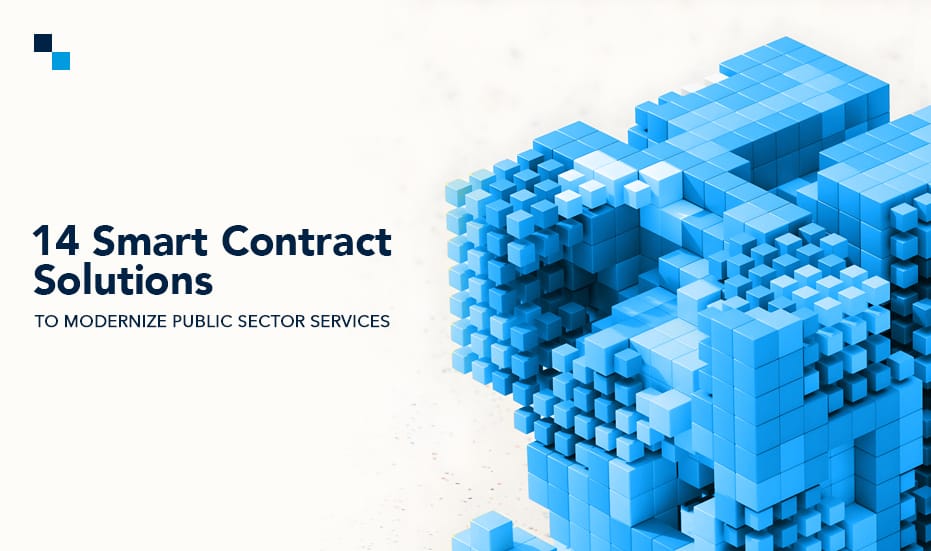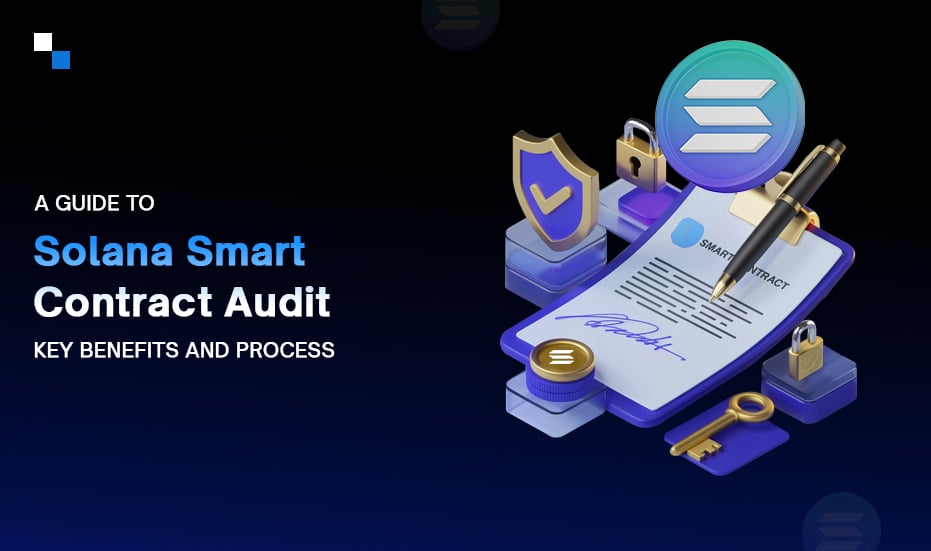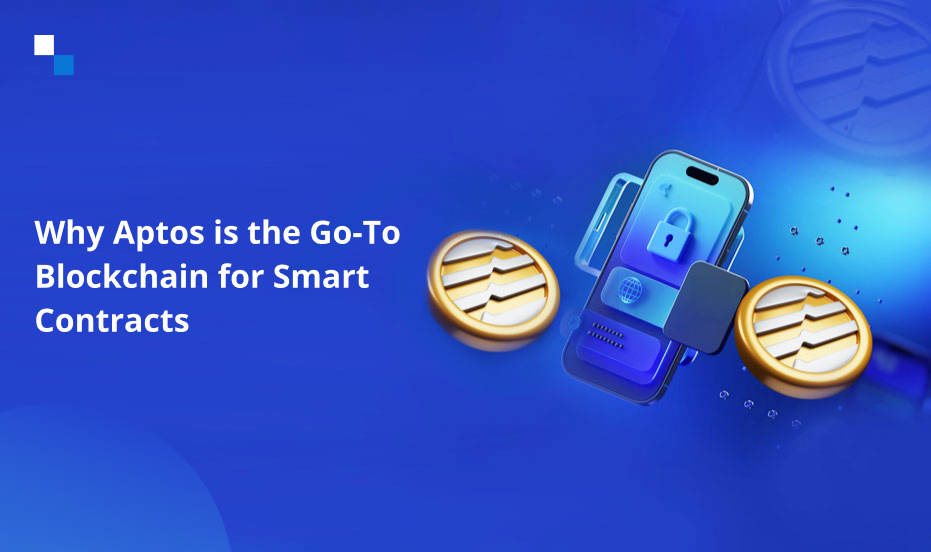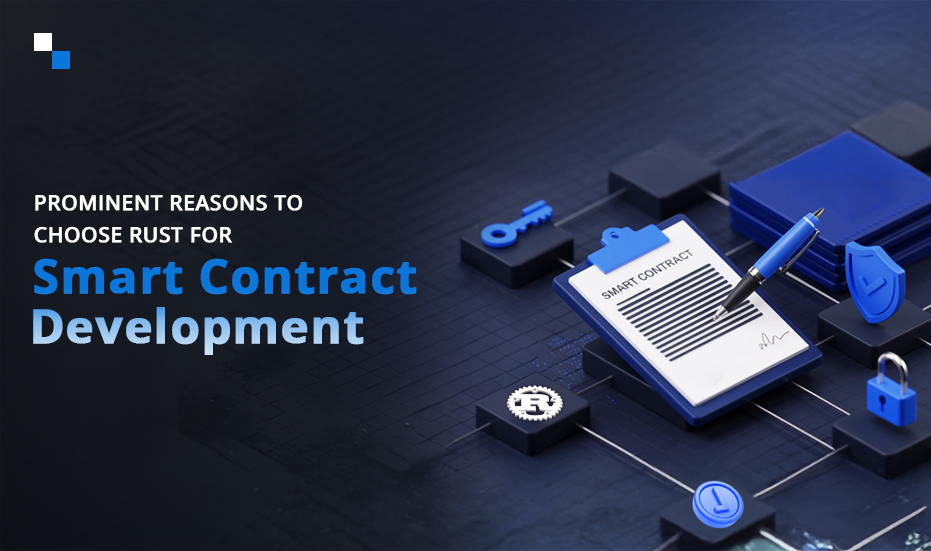
Choosing the Right Blockchain for Your Game: A Comparison Guide
November 12, 2024
The Mystery Behind The Bitcoin Creator Satoshi Nakamoto
November 12, 2024We live in a tech era, which has changed how public and private companies run their businesses using the internet. In the currency scenario, blockchain and smart contracts have emerged as effective tools for promoting efficiency, transparency, and accountability in every government operation.
Smart contracts are being utilized to develop smart cities, simplify procurement processes, and streamline the bidding and purchasing procedures by automating contract execution and payment verification. Additionally, they are being implemented in voter registration and election systems to ensure the integrity and immutability of voting processes. Smart contracts also enhance land registry systems by providing a transparent and tamper-proof record of property transactions. Another application of smart contract development includes the management of public utilities such as electricity, water, and waste management, by automating service delivery and payment procedures.
Let’s continue the discussion!
1. Smart Cities
A smart contract has the potential to revolutionize the development process of smart cities by using effective and secure automation in transactions and agreements. Blockchain-based smart contracts allow agreement execution based on predetermined terms, which effectively saves time and resources for maintaining city infrastructure. The adoption of smart contracts in smart cities can help ensure the mechanization of processes like waste collection, public transport, energy distribution, and even citizen identification systems. These self-enforcing contracts ensure that each and every transaction is transparent, precise, and account-based, thus eliminating much of the need for intermediaries and associated risks of human error or fraud.
2. Public Procurement and Tendering
Public procurement isn’t devoid of corruption and inefficiencies. Implementing smart contracts can make the process of tendering more effective by automating the process of bid submissions, evaluation, and contract awards. Smart contracts do not fall prey to the bias and favoritism typically found in human selection because they carry out their services based on prior lay-on criteria for selection that lead to fair and transparent contract awards. Payments can be automatically released on the attainment of project milestones that are validated through digital records.
3. Central Banking
The implementation of smart contracts may offer various advantages to the central banks. They automate different processes, which enhances efficiency and decreases the possibility of error in a process that is executed manually. Central banks can rely on smart contract development services to increase transparency and immutability and induce trustworthiness in all financial transactions. The use of smart contracts in central banks enhances compliance while allowing it to simplify monetary policies for securing a safer and more stable financial environment. Additionally, the technology helps eliminate the role of intermediaries, resulting in a reduction of time and costs of conducting transactions.
4. Voting Systems
Implementation of smart contracts into the voting process provides a large number of advantages. First, it displays clear and irreversible records of the entire voters on the blockchain which further ensures the integrity of the voting process. Smart contract development can automate voting process execution making it less prone to misdirection through human error or manipulation. Smart contracts use cryptographic techniques to secure information regarding voters, therefore making it very secure and untamperable as well as inaccessible. In general, the smart contracts in voting systems give assurance of a more secure and transparent electoral process.
5. Land and Property Registration
Utilization of smart contract development services in the field of land and property registration will go a long way in fostering efficiency and security. Smart contracts, based on blockchain, streamline the whole process involved in recording property rights and making transactions within real estate. Implementation of smart contracts not only automates the process and eliminates the need for intermediate parties and, but also minimizes chances of errors and corruption and ensures faster registration processes. Smart contract development is the best way of guaranteeing tamper-proof records and also allowing access by relevant parties to those records. Smart contracts in land and property registration will indeed be a highly professionalistic attempt at modernizing age-old practices while paving the way for a more reliable and smoother system in the real estate industry.
6. Social Welfare Programs
Smart contracts can be used to change the social welfare program administration and access. No wonder, it will ensure a maximally transparent, trustworthy, and efficient process in providing the benefits to the right recipients. Smart contracts minimize bureaucratic hurdles, fraud, and corruption by entirely automating the activity, thus assuring complete security and effectiveness in resource allocation. This would also actually simplify the conditions of being eligible and accelerate the payouts to recipients. It will not only ensure enhanced accountability and effectiveness in welfare initiatives but also enable people to get easy access to critical support services. While governments and other agencies weigh the promises of smart contracts with social welfare programs, proper care needs to be taken toward data security, access, and inclusiveness so that the technology bears fruit.
7. Validation of Education and Professional Qualifications
Collaboration of smart contract development services with the education department will be fruitful in professional qualification verification. It is a new turn in how credentials get authenticated and shared between industries. Self-executed contracts, coded to automatically check the verification process as well as enforce it. It allows students to harness secure ways and efficient channels of proving their authenticity and ensure instantaneous and tamper-proof verification. Apart from it, it eliminates the risks of fraud or inaccuracies that may occur in traditional paper-based systems.
8. Tracking Vaccinations
Smart contracts streamline procedures with high transparency and accuracy in tracking vaccination administration and immunizations. The records are maintained securely on the blockchain and make it possible to trace the real-time status of vaccination. Including such technology in health systems, helps monitor vaccine distribution to patients. The usage of smart contracts might also improve communication and exchange between health facilities, government agencies, and pharmaceutical companies for unidirectional smooth information transmission without any threat of misuse. In general, data management and compliance can be improved by using smart contracts in tracking vaccinations, which will further facilitate higher efficiency and effectiveness in the execution of immunization programs.
9. Tracking Loans and Student Grants
Smart contract development has revolutionized the way loans and student grants are followed. It provides a safe and reliable process for finishing financial transactions. These contracts automatically verify and enforce the terms of agreements. Therefore, the process that normally relies on some form of record or tracking is undertaken both transparently and with minimal risk of fraud. With smart contracts, all the issues relating to both student loan and grant disbursement, repayment schedules, and amendment terms can be covered with one easy-to-use package. it not only ensures compliance with predetermined rules but also eliminates the involvement of any middleman, which reduces operational costs and waiting time.
10. Tax Collection
Tax collection through smart contracts is beneficial in many ways. It makes tax collection easier, automates calculations, assures compliance, and gives the process an immutable audit trail. It also improves efficiency & accuracy in tax transactions and reduces human error and fraud. Smart contract development services can also enable government agencies to maintain real-time oversight of tax payments to ensure prompt processing and improved revenue collection. Indeed, the incorporation of such an advanced technological solution manifests a commitment to modernizing systems or fiscally managing taxes, gaining the trust of taxpayers, and ultimately promoting better fiscal management.

11. Legal and Judicial Processes
The use of smart contracts within legal and judicial processes can really streamline things and render more efficient processes within the legal system. Automated legal processes, which may include payment settlement and resolving disputes can be handled smoothly using smart contracts. Using well-audited contracts leaves no scope for errors or fraudulent attempts. Agreements created for law firms will be tamper-proof and hence cannot be challenged in the courts of law. This increases the accountability and credibility of law practitioners in the public sector.
12. Environmental Monitoring and Management
Undeniably, smart contracts have transformed the handling of environmental monitoring and management procedures. Blockchain-powered self-executing contracts can be relied upon for accuracy, transparency, and efficiency in the consideration of environmental data and rules implementations. Stakeholders can automate the processes of emissions monitoring, waste management, and resource allocation with precision and tamper-proof reliability. Smart contract development is an advanced technological solution that streamlines adherence to environmental standards and builds trust among parties in monitoring and managing environmental impact. No wonder, organizations now possess the ability to respond rapidly to environmental issues and make decisions in real-time because it is possible to execute automated actions based on predefined criteria.
13. Public Records Management
Smart contracts ensure that public records achieve accuracy and immutability through blockchain technology with a decentralized, tamper-proof system. It helps in smooth verification processes with reduced risks of fraudulent activities. These self-executing contracts ensure real-time updates and help streamline the channels of communication to enhance the entire basis of reliability and transparency while managing public records. It results in saving resources for recording activities and permitting governmental agencies to focus on more critical functions that are needed and beneficial to society. Government agencies can tie up with smart contract development services to smoothen public records management and ensure data integrity, accountability, and trustworthiness in government operations.
14. Identity Management
Smart contracts have revolutionized several sectors and are now about to transform identity management in general since the verification and storage of personal information will be validated and carried out securely. Smart contracts create a decentralized and tamper-proof system for identity management. People will control their personal data much better when cryptographic verification is used, thereby making sure that there is a seamless and secure way of transacting without any intermediary. It fulfills the requirements of privacy and security apart from simplifying the process because most of the verification processes are automated. The use of smart contracts to enhance identity management practices develops trust between parties since blockchain technology does not create chances of altering data or unauthorized access.
Conclusion: The Role of Smart Contract Development Services
As the public sector continues to explore innovative applications of smart contracts, the demand for smart contract developers will grow significantly. Antier specializes in providing comprehensive smart contract development services tailored to meet the unique needs of government entities across various sectors. We provide end-to-end support in developing secure and efficient smart contracts for the smooth functioning of public sector operations. Let’s get started!



